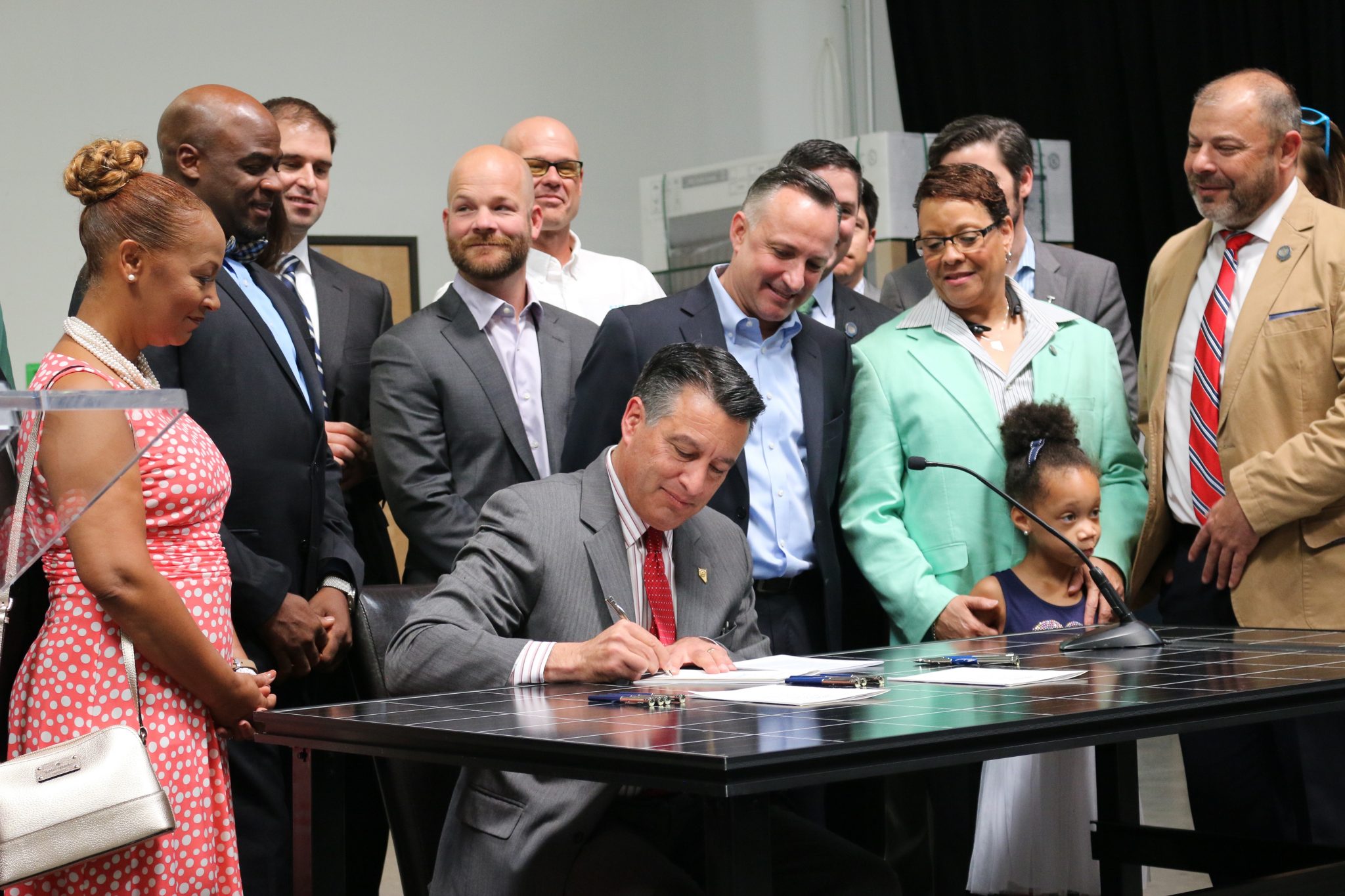
A suite of policy actions adopted in Nevada this month marked a dramatic turnaround in a state that two years ago rolled back net metering rules, crippling its growing rooftop-solar industry. With this reversal, Nevada provides the latest example of a state taking bipartisan action to build a clean energy economy. Since President Trump’s election, Illinois, Michigan and Ohio have all adopted policies to advance their economies with renewable energy and energy efficiency. Eleven bipartisan bills were passed in Nevada’s 2017 biennial legislative session, and Governor Brian Sandoval (R) signed nine of them into law—including a reinstatement of net metering (full list below).
The new laws will cut carbon pollution by at least 300,000 tons, bring 240 megawatts of solar generation on line, and reduce demand by 0.5 percent each year due to gains in efficiency—all while generating a market impact of about $500 million, significant numbers in a state with fewer than 3 million residents.
While Governor Sandoval’s veto of a bill to increase the state’s Renewable Portfolio Standard (RPS) was a disappointment, he acknowledged in his veto message that increasing the standard has wide support in Nevada and nationally, and launched a study of the benefits of a stronger standard for future consideration.
Fifteen Energy Foundation grantees and dozens of allied organizations representing business, conservative, African American, Latino, environmental, and faith perspectives, raised Nevadans’ awareness of the health and economic benefits of clean energy.
Coming on the heels of Trump’s withdrawal from the Paris Agreement, Nevada’s progress carries an important message: The transition to a clean energy economy is inevitable. Policymakers across the political spectrum are embracing clean energy because of the economic and job benefits it brings to their states—regardless of what Washington, DC, does. Nevada’s nine new energy policies will:
- Expand cost-effective energy efficiency programs with a 5 percent set-aside for low-income communities
- Expand clean energy financing through the creation of a Green Bank
- Expand clean energy financing through creation of commercial property-assessed clean energy (PACE) programs
- Create an electric vehicle incentive program
- Restore and stabilize net metering rates for rooftop solar that bring industry jobs back to the state, and establish consumer protection measures via a Renewable Energy Bill of Rights
- Establish annual energy efficiency goals and consideration of non-energy benefits, and set aside 5 percent for low-income communities
- Prioritize clean energy in utility planning to meet new electricity demand
- Implement distributed resource planning
- Institute a framework to set utility energy storage targets
Vetoed policies would have:
- Increased the RPS to 40 percent by 2030
- Created enabling legislation for community solar gardens
By Amy Fuerstenau, Senior Campaign Director, States and Regions
Grantee activities described here were educational. Energy Foundation funds did not support legislative lobbying.